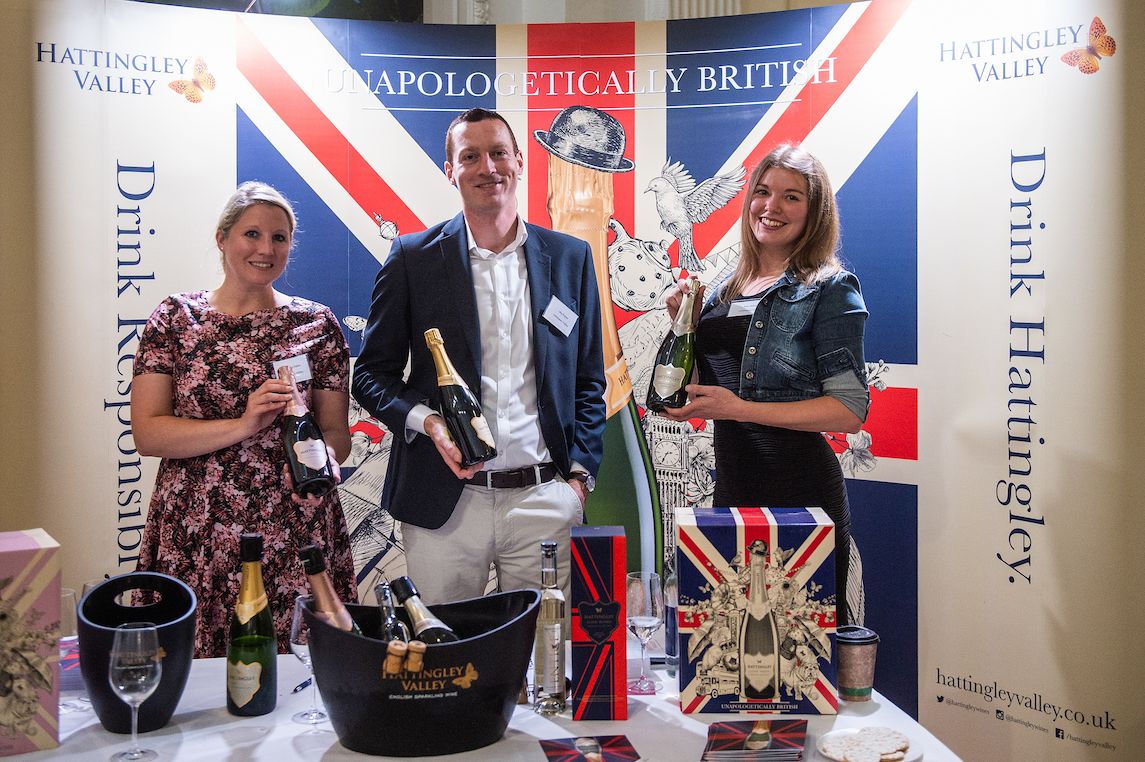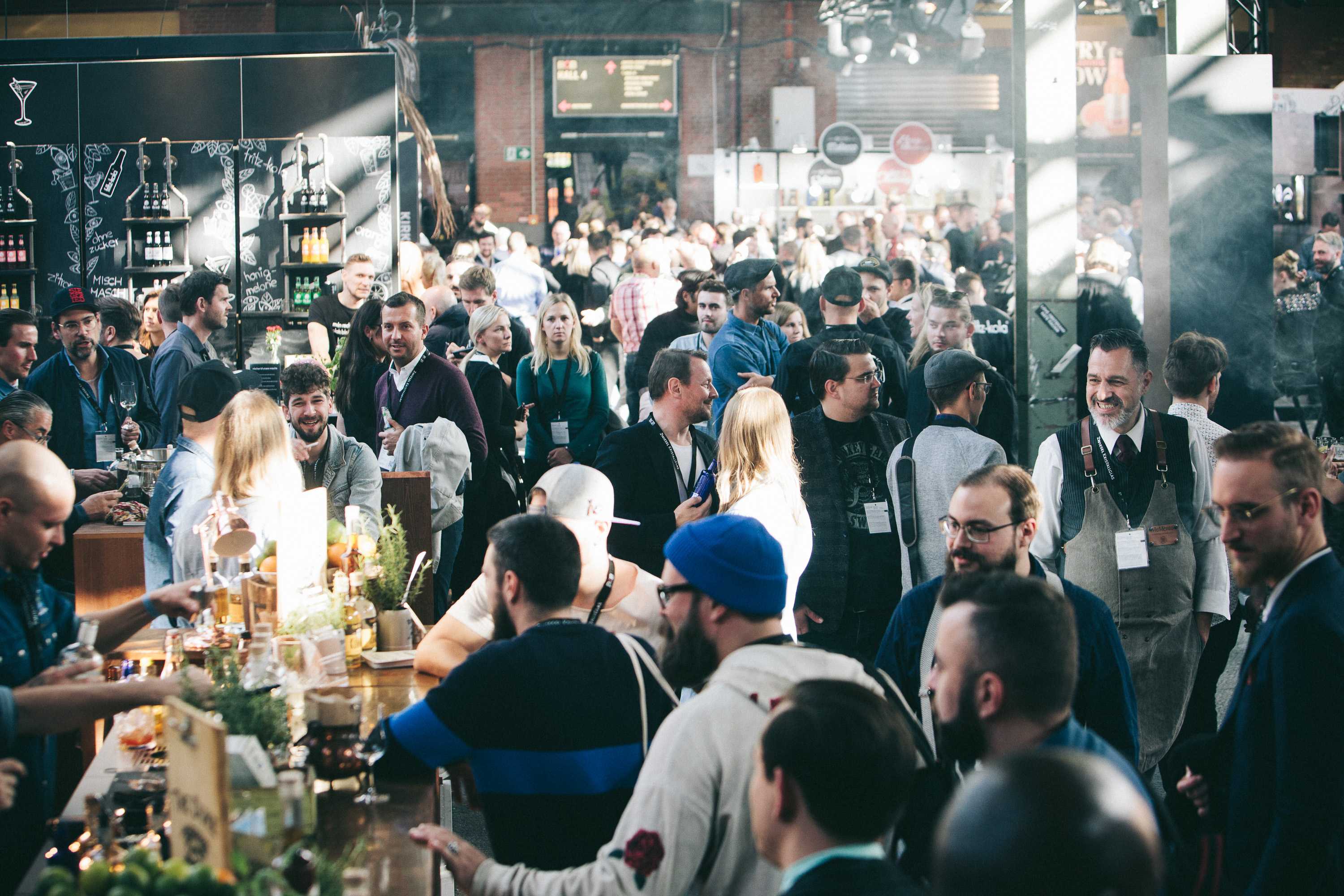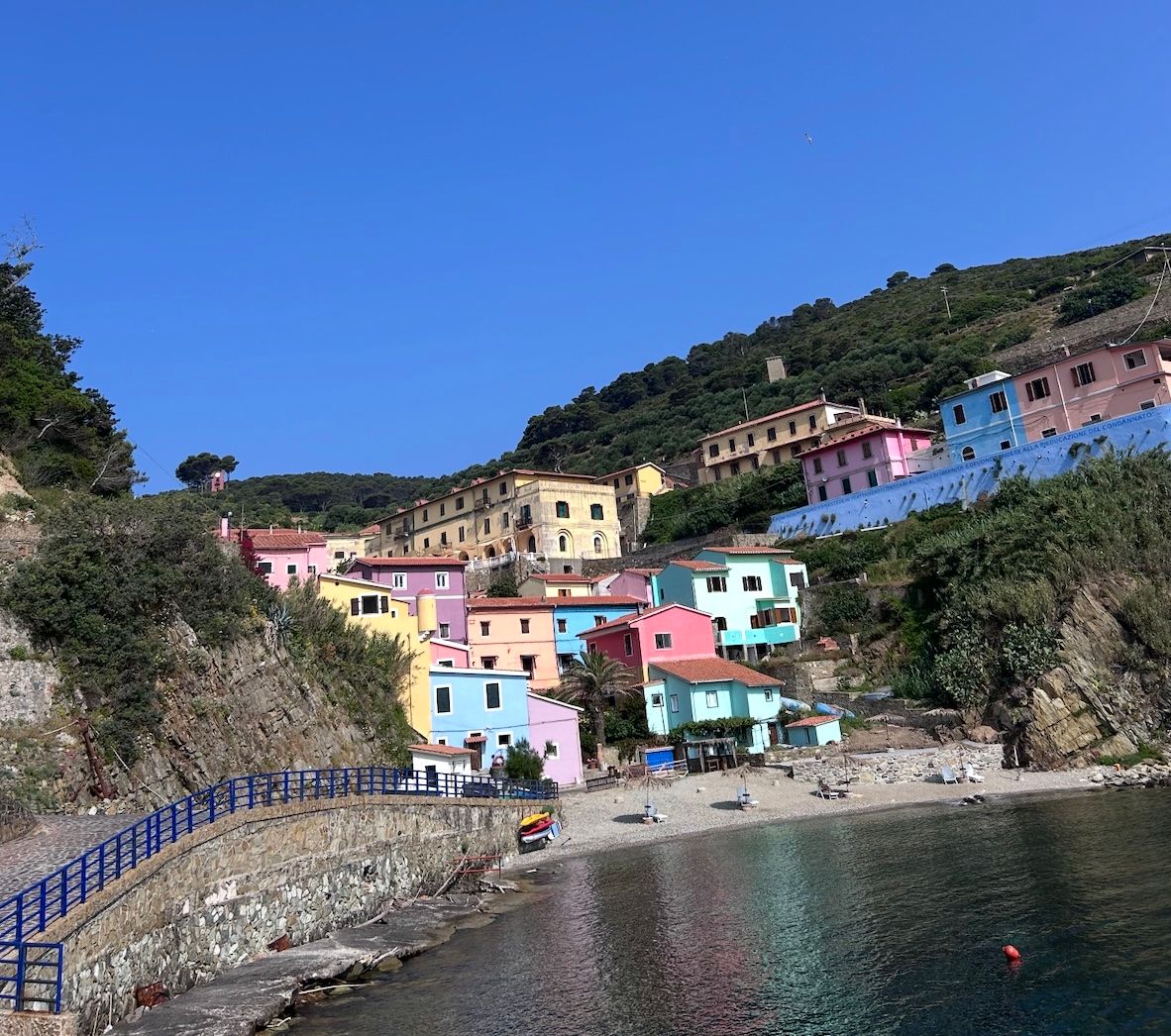Aside from the six wineries highlighted Keay gives honourable mention to The Grange, Montgomery, a’Beckett’s, Danebury, Sixteen Ridges and Fitz
To promote with the motto “Unapologetically British” in the midst of this absurd, self-harming, Brexit shitshow, suggests touching faith in battered Old Blighty. At a time when our foreign friends think we are in the midst of a national nervous breakdown, “Apologetically British” or “Embarrassedly British” might seem more appropriate, at least to this writer who spent the summer working on his Australian accent.
Yet Hattingley Valley (whose motto is “Unapologetically British”), like much of the rest of the English (and Welsh) wine industry is a much needed beacon of light during this time of national crisis.
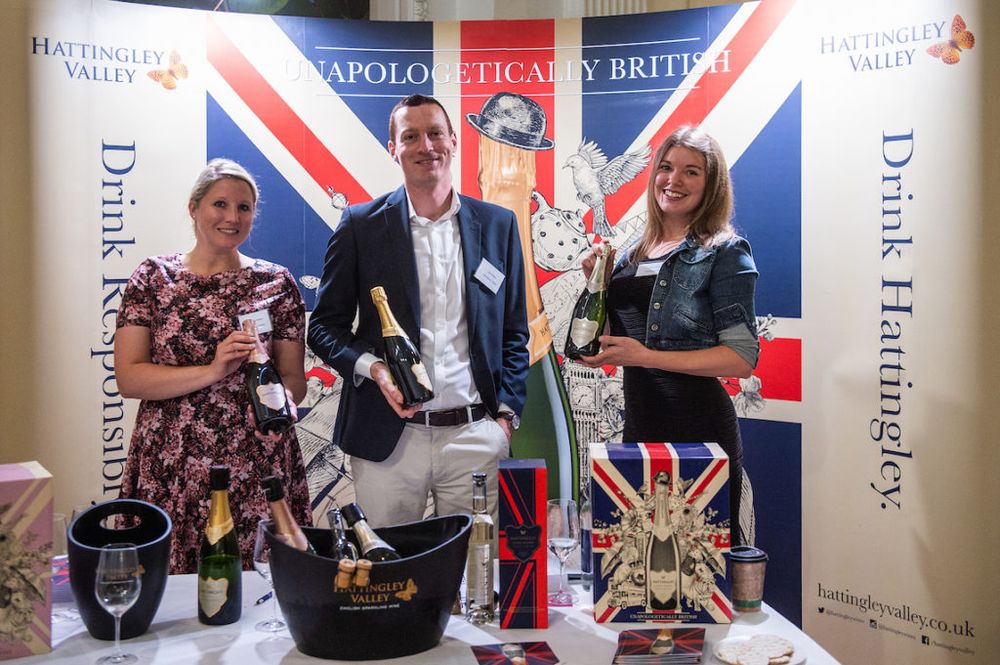
“Things really are at a turning point,” says Simon Robinson, chairman of Hattingley Valley and of industry body Wine GB.
He says 2018 was a watershed year with three million vines planted, a 24% increase in the amount of land under vine. With Mother Nature at her most benign, production was significantly up to around 13 million bottles last year – against the puny 6 million produced during 2017 which, like 2016, saw the harvest hit by bad frost. Brexit also played a part, pushing sterling down which almost certainly helped exports double from 4% to 8% of total production, with sales of 200,000 bottles worth some £7m. According to WSET, Britain is now home to 502 vineyards, of which 180 are open to the public and 133 wineries; this suggests a hitherto largely unexplored opportunity for wine tourism.
British wine has reached a point where it really can sell on quality alone, and on point of difference. OK, prices may still be high in relative terms – reflecting everything from high land costs to lack of economies of scale in the vineyard and winery. But this really feels like an industry that is moving forward fast, developing and honing its sense of identity as it goes.
This year’s Wine GB Tasting, was one of those rare “you really had to have been there” tastings with so many good wines it was tough, frankly, to know where to start.
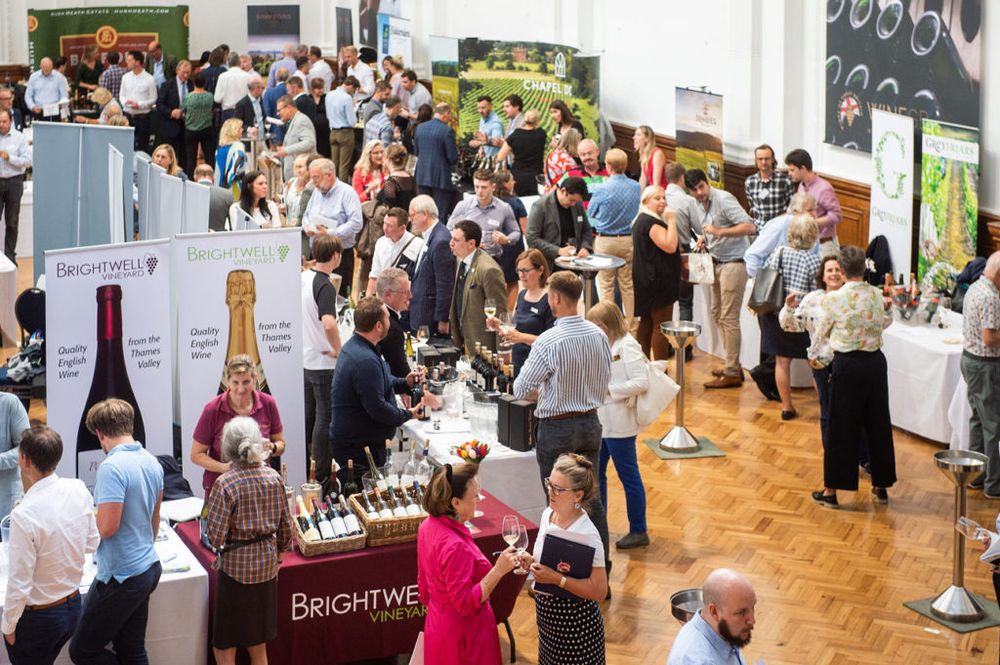
But my Top 6 producers from this tasting – from six different counties, illustrating the spread of Britain’s wine culture – are, in no particular order:
Greyfriars Vineyard (Surrey)
Located on the Hog’s Back just outside Guildford, Greyfriars is perfectly located for growing grapes but also for receiving visitors from London who, according to owner and winemaker Mike Wagstaff, are coming in increasing numbers.
“I think this is really key because to fully appreciate a wine you have to see and understand where it comes from,” he says. Greyfriars has expanded now to 40 acres under vine with 70,000 bottles produced last year in its new winery. Its hallmark has always been offering good wines at a fair price and their Cuvee Brut NV (a blend of PN, C and PM) and their Classic Cuvee Brut 2014 (C, PN, and PM) at respectively £20 and £25 a bottle, show they are achieving this.
Bolney Wine Estate (West Sussex)
One of Britain’s oldest producers is one of its most innovative, with a fantastic range of wines including some very moreish off-piste ones, with a bigger focus than most on still wine thanks to what seems to have been a prescient move by owner and chief winemaker Sam Lintner a few years ago. Their moreish, subtle Pinot Noir often gets rave reviews but for me it is their Bacchus (2018 vintage) and Pinot Gris that best define them. Amongst the sparklers, the crowd pleasing Bolney Bubbly NV is a joy and good value at £24 and the Blanc De Noirs is excellent (£33) but my favourites here are their moreish Eighteen Acre Rose NV (a blend of Rondo, Dornfelder and Acolon – no me neither) at £24 and their dry take on Lambrusco, the ink black Cuvee Noir Brut 2014.
Langham Wine Estate (Dorset)
I’ll freely admit I had never heard of this producer, located to the north of Dorchester, which had its first vintage back in 2011 (and now makes some 60,000 bottles a year mainly from what it says is the south-west’s largest single site vineyard). Until, that is, I saw they had scooped so many of the awards at the recent Wine GB Awards ceremony. Deservedly: their NV Rose (52% PN, 48% PM) is a zesty, vibrant wine with lots of fruit driven character whilst the Blanc de Blancs Reserve NV which won the Supreme Champion award, is an absolute stunner.
Black Chalk (Hampshire)
Award-winning winemaker and former City financial analyst Jacob Leadley, only launched Black Chalk last November at the Winchester Wine Festival but has had a wild ride since then getting widespread acclaim for his Black Chalk Classic and Black Chalk Wild Rose. His secret weapon is Pinot Meunier, which accounts for a large share of the blend in each wine and which Leadley says enjoys almost perfect growing conditions in Black Chalk’s Winchester base. News in September that the winery has just secured a £1.5m investment to build a new winery and tasting room confirms Leadley is on a roll.
Harrow & Hope (Oxfordshire).
Based in scenic Marlow, this winery founded by Henry Laithwaite, son of Tony and Barbara Laithwaite, was completely off my radar until I tasted their delicious Blanc de Noirs 2013, a 68% PN/32% PM blend that was probably my wine of the tasting. “Firing on all cylinders” was one comment I wrote into my tasting book, and I certainly was after tasting this delicious wine, which also jointly won the Wine GB prize for Best Blanc de Noir, with H&H also taking the top Winery of the Year award.
Simpsons Wine Estate (Kent)
This Kent winery run by Charles and Ruth Simpson – who run the Languedoc winery Domaine Sainte Rose – only had its first vintage three years ago, but has gone from strength to strength, with its Roman Road Chardonnay and the Chalklands Classic Cuvee 2016 winning plaudits from across the industry. This year, with 30 hectares planted, they are working on a new winery and will soon have the capacity to produce some 250,000 bottles of still and sparkling wine. I was impressed with the second Chardonnay, the unoaked Gravel Castle 2018 and especially the Derringstone Pinot Meunier 2018, the UK’s first still single varietal, especially dark and savoury on the finish and likely to mature well. Different, but in a good way.
Ruth Simpson reckons this is a crossroads moment for English wine.
“There is huge positivity surrounding the industry and the focus should absolutely be on building brand England both nationally and internationally,” she says.
Which brings us back to that phrase: “Unapologetically British?”
Well, why not. Our constitution is in tatters, our economy tanking and our prime minister a duplicitous bargain-basement Churchill, but we are now making good wine with a distinct identity that we can be genuinely proud of. And thank God. We’re going to need every drop.
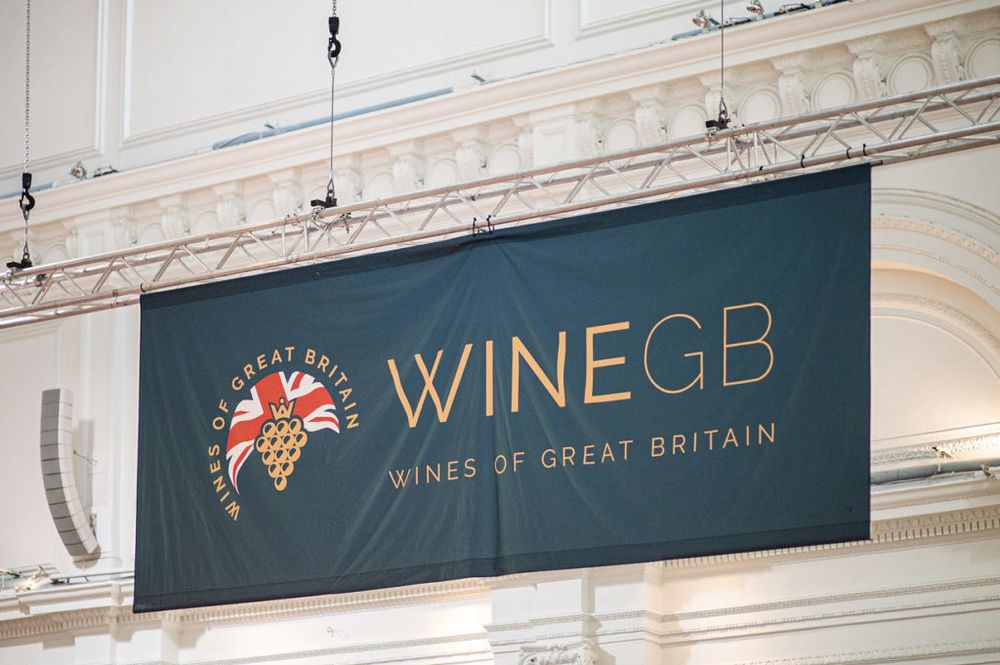
And just one last word
Honourable mentions from Wine GB tasting 2019 must go to:
- The Grange (based near Winchester) for its classy, small volume, Pinot Meunier-heavy Classic and Pink NV sparklers
- Montgomery, the best Welsh wines I have tasted, showing true class and professionalism (with extra marks for its Bacchus Solaris Blend 2018)
- a’Beckett’s (based near Devizes), a delicious, fun Rams Cliff Rose 2018 made from Pinot Noir and Reichensteiner
- Danebury, for its Sparkling Cossack Brut 2014 made from Auxerrois and Pinot Gris and their Old Vine Schonburger
- Sixteen Ridges, for its delicious, surprisingly rich Pinot Noir Precoce 2014 from Worcestershire
- Fitz, the UK’s leading producer of Charmat-style sparkling wine, made with very moreish results.
Apologies to the producers I didn’t have a chance to stop by, including old but reliable warhorses Chapel Down, Denbies, Nytimber and Camel Valley. Tasting their respective ranges – indeed visiting them too if time ever allows – is very much on my to-do list.
